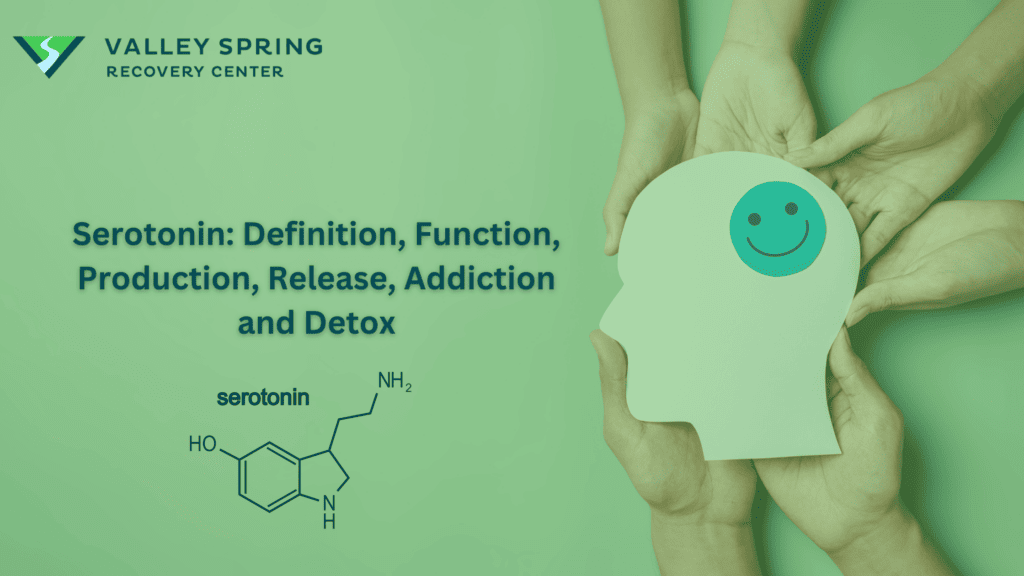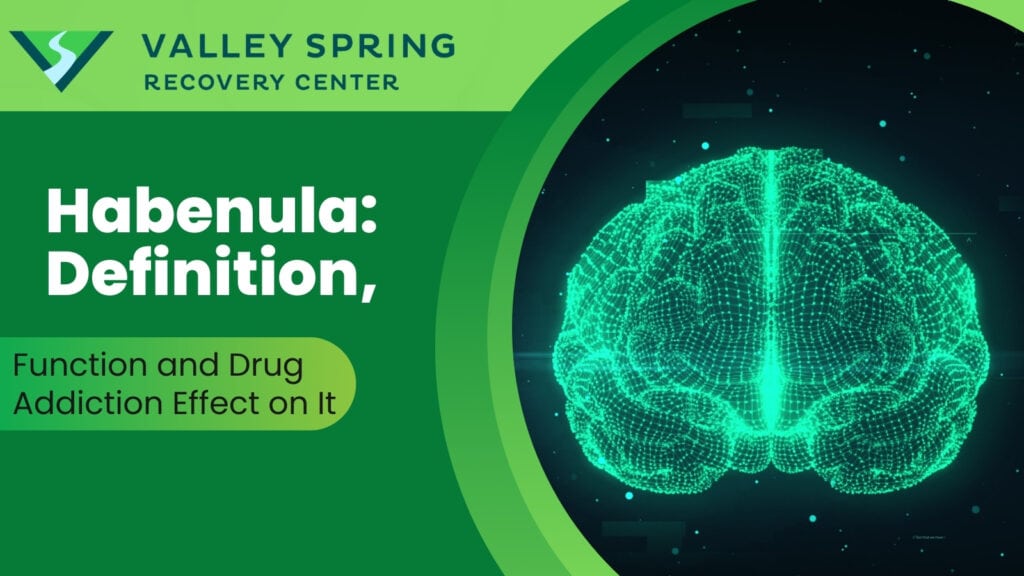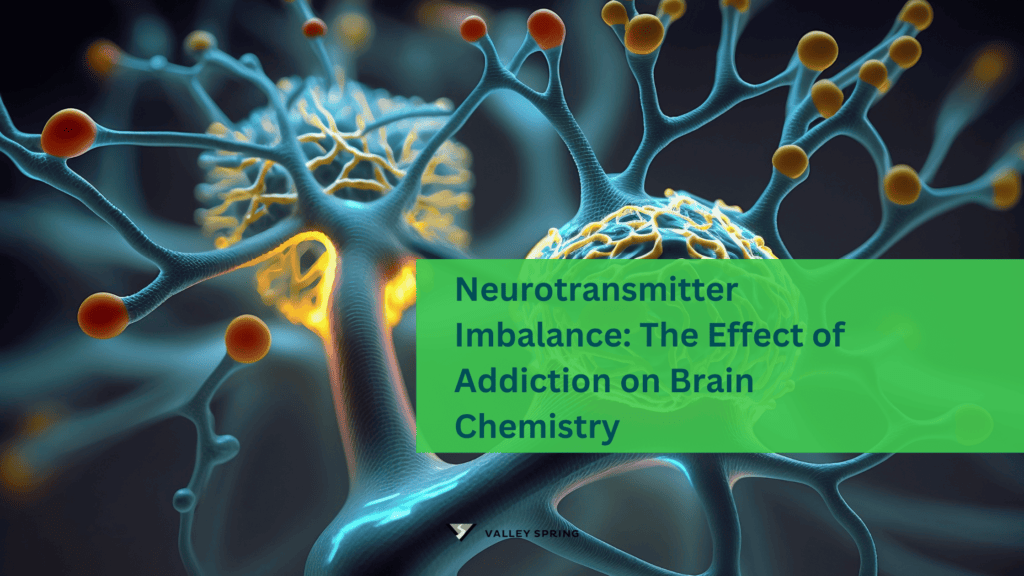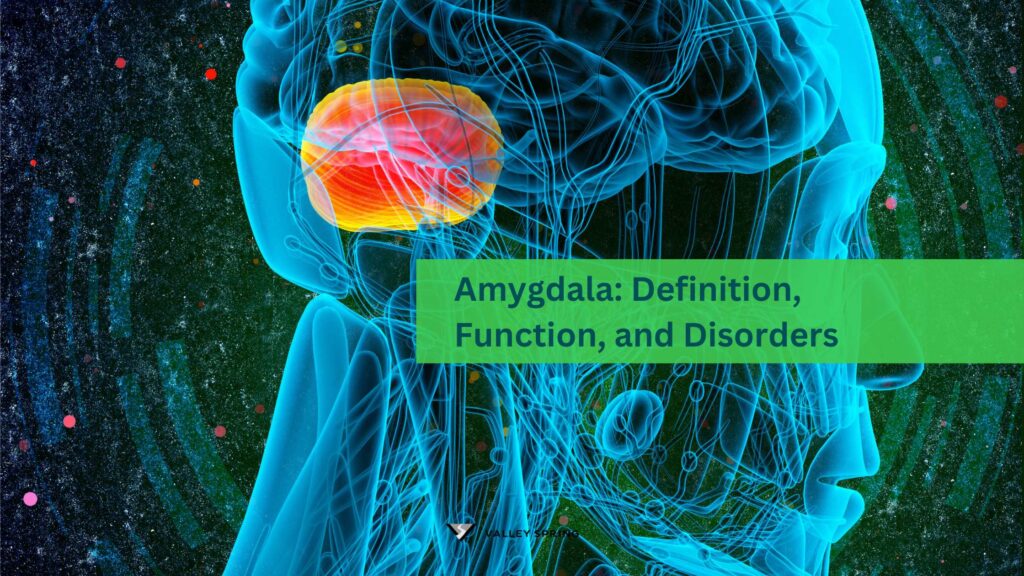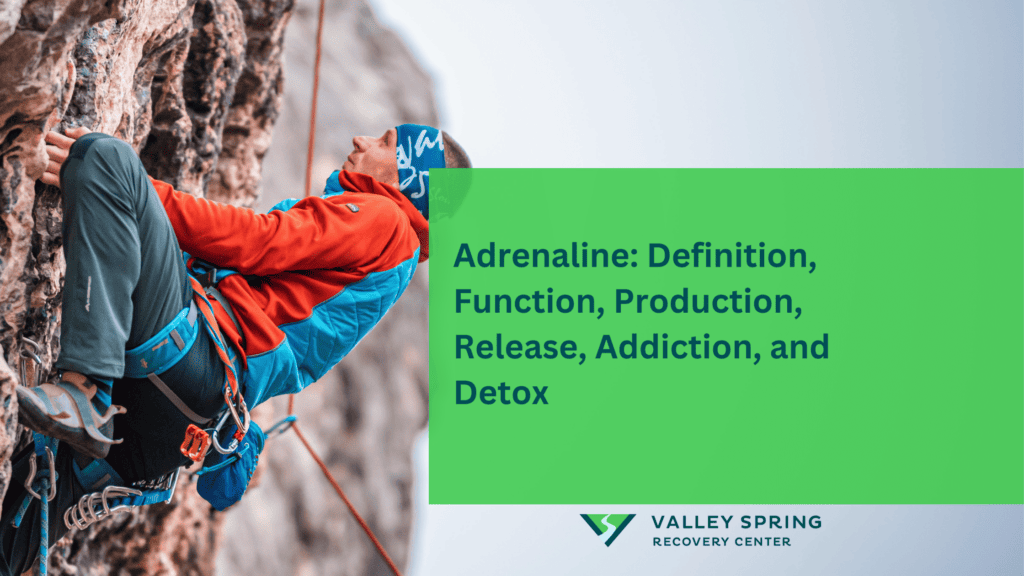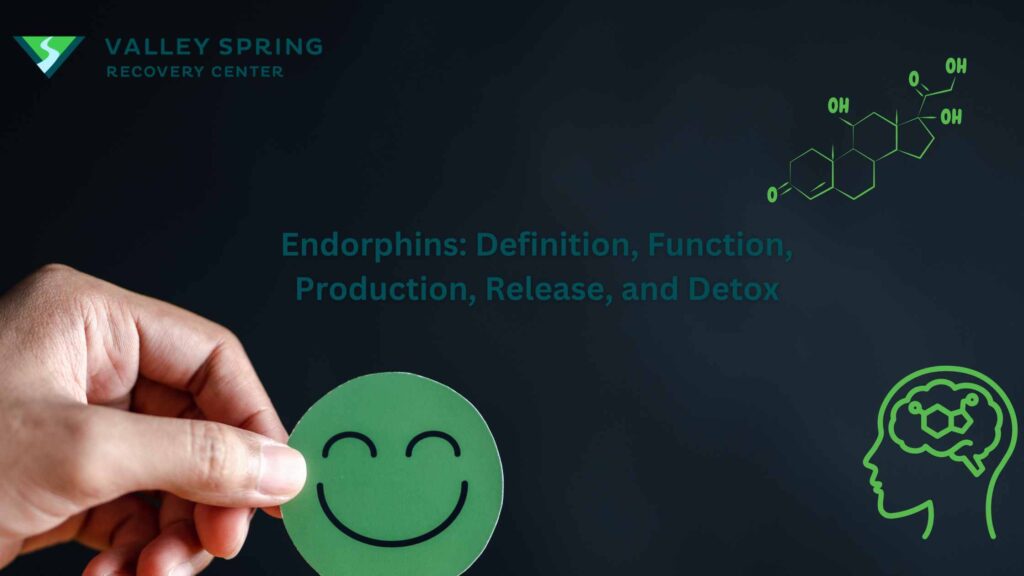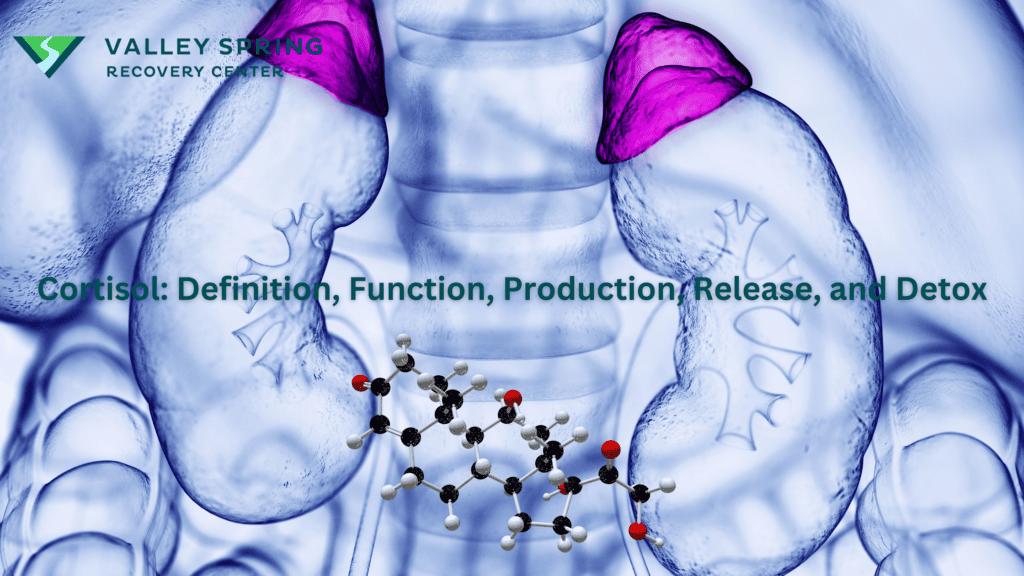Serotonin is a neurotransmitter primarily found in the brain and gastrointestinal tract. It plays a crucial role in regulating mood, sleep, healing, memory, sexual drive, and learning.
Serotonin functions as a naturally-occurring feel-good hormone in the body. The feelings of well-being, emotional stability, and focus occur as long as serotonin levels in the body are balanced. Low levels of serotonin can drive people to seek out addictive behaviors and substances to balance out serotonin levels. Additionally, using addictive substances such as cocaine or alcohol interferes with serotonin levels in the brain.
The neurotransmitter is produced in the gastrointestinal tract and the brain by synthesizing an essential amino acid known as tryptophan. The amino acid is acquired from protein-rich foods such as meat, dairy products, eggs, soy, peanuts, and buckwheat.
Serotonin is released in several phases that include action potential, calcium-driven exocytosis, receptor binding, reuptake, and metabolism.
Addictive substances normally upset the balance of the neurotransmitter in the brain. Detoxification and rehabilitation seek to restore the balance of serotonin in the body by weaning the person off addictive substances so that they can enjoy natural rewards such as food, and social interactions.
What is serotonin?
Serotonin is a neurotransmitter responsible for regulating moods, sleep, learning, memory, and cognition as well as cardiovascular and gastrointestinal activities. It belongs to a class of neurotransmitters known as monoamines derived from tryptophan. Structurally, it forms an aromatic, heterocyclic ring with an ethylamine side chain, which makes it an indoleamine. Serotonin’s chemical formula is C10H12N2O, and its chemical name is 5-hydroxytryptamine.
The neurotransmitter plays a key role in addiction as it is heavily involved in the brain’s reward system. This makes it hard to stop engaging in rewarding behavior or using addictive substances. In addition, serotonin plays a role in impulsivity and decision-making, both of which are linked to addiction. Dysfunction in serotonin pathways may contribute to impulsive behaviors and poor decision-making, these make individuals more vulnerable to developing addictive behaviors.
What is Serotonin’s Role in Addiction?
Serotonin, commonly dubbed the “happiness hormone,” is crucial in our pursuit of well-being and happiness. This neurotransmitter oversees an array of critical functions, including mood regulation, digestion, healing, sexual desire, and appetite. Its roles extend to reducing excitement, and aggression, enhancing memory, and managing both sleep and stress.
1. Serotonin’s Impact on Mood and Behavior
Serotonin levels’ fluctuation significantly influences mood and behavior, showcasing a direct correlation with addiction. Individuals with low serotonin levels often struggle with memory, learning, and mood regulation issues. This instability can prompt a relentless pursuit of rewarding behaviors, such as sexual engagement and addictive substance consumption, as attempts to counteract serotonin imbalance.
2. Serotonin and Addiction: A Direct Connection
The relationship between serotonin and addiction is further elucidated by insights from Michael Parsons, an assistant professor at The Scripps Research Institute. Parsons highlights that substances like ethanol, cannabinoids, opioids, or psychostimulants raise serotonin levels in the brain, perpetuating a cycle of substance use to achieve a rewarding sensation and thus contributing to addiction.
3. The Brain’s Reward System and Serotonin Dysregulation
The brain’s reward system plays a pivotal role in addiction, becoming dysregulated and fostering compulsive drug-seeking behaviors and tolerance. A study published by the National Institute of Health (NIH), “Contributions of Serotonin in Addiction Vulnerability” (Kirby, L. et al., 2011), underscores that habit-forming substances, including alcohol, psychostimulants, and opioids, augment serotonin levels in the brain. This continual surge disrupts the neurotransmitter’s balance, resulting in depleted serotonin levels over time, especially when substance use is abruptly stopped. This phenomenon explains the serotonin depletion experienced by individuals withdrawing from habit-forming substances, further entrenching the cycle of addiction.
Understanding serotonin’s multifaceted role in promoting well-being and its involvement in addictive behaviors offers valuable insights into addiction’s complexity. It underscores the importance of maintaining neurotransmitter balance for mental and physical health, highlighting the intricate relationship between our biological systems and addictive behaviors.
What is the role of serotonin in regulating mood, and sleep cycle?
Since serotonin is heavily involved in regulating feelings of well-being and happiness, low levels of the neurotransmitter result in depression and anxiety. On the other hand, high serotonin levels are linked to emotional stability and better moods.
Serotonin is responsible for regulating the sleep-wake cycle. The neurotransmitter achieves this with the help of melatonin, a hormone produced in the brain when the body senses the onset of darkness. Normally, serotonin levels increase when a person is awake and decrease when darkness falls which contributes to the circadian rhythm.
How is serotonin produced?
Serotonin is derived from tryptophan, an amino acid. Since the body cannot make the amino acid independently, it extracts the building blocks of the amino acid from tryptophan-rich foods such as milk, cheese, chicken, peanuts, egg whites, and pumpkin seeds.
Primarily, most of the serotonin is synthesized in the digestive system. In addition, the brain produces serotonin for its use. When synthensized in the brain, the neurotransmitter is held in vesicles within the presynaptic neuron waiting for the messages signaling its release. However, when synthesized in the digestive system, serotonin is made in the enterochromaffin cells of the gastrointestinal tract, where it is released from enterochromaffin cells to act locally within the gut to regulate bowel movement and secretions.
How is serotonin released?
Serotonin release is a highly complex process that takes place in several phases. These include action potential, calcium-driven exocytosis, receptor binding, reuptake, and metabolism.
- Action potential: A stimulus causes a neuron to fire a signal or action potential to the presynaptic neuron creating a depolarization of the cell membrane. The depolarization opens voltage-gated calcium channels, allowing calcium ions to enter the cell.
- Calcium influx exocytosis: The influx of calcium triggers the fusion of serotonin-containing vesicles with the presynaptic membrane. This fusion causes the vesicles to release serotonin into the synaptic cleft via a process known as exocytosis.
- Binding to receptors: Once released into the synaptic cleft, serotonin diffuses across the gap and binds to specific serotonin receptors on the postsynaptic neuron. Serotonin receptors are classified into several subtypes (e.g., 5-HT1, 5-HT2, etc.), each with distinct effects when activated.
- Reuptake: To terminate the signaling action of serotonin, it is actively transported back into the presynaptic neuron by serotonin transporters, also known as serotonin reuptake transporters (SERT). This process, called reuptake, allows for the recycling of serotonin and regulates its concentration in the synaptic cleft.
- Metabolism: Once inside the presynaptic neuron, serotonin is degraded by monoamine oxidase (MAO), an enzyme, leading to the formation of 5-hydroxyindoleacetic acid (5-HIAA), a metabolite that is eventually excreted from the body.
What Happens to Serotonin Receptors During Detoxification
Detoxification refers to the physiological and psychological process of eliminating addictive substances, from the body. The long-term use of drugs such as opioids reduces the number of serotonin receptors in the brain, leading to diminished serotonin signaling. This downregulation of serotonin receptors contributes to the development of tolerance. Since these substances upset the balance of serotonin in the body, their absence usually causes withdrawal effects such as mood swings, paranoia, confusion, fatigue, and insomnia.
Withdrawal effects are quite uncomfortable and may require management using medications such as selective serotonin reuptake inhibitors (SSRIs) to alleviate some of the symptoms and make detoxification more tolerable. In addition, since serotonin is involved in regulating cravings and impulse control, recovering addicts often experience intense cravings for the substance during detoxification. Medications such as naltrexone usually come in handy to reduce cravings and prevent relapse in individuals undergoing detoxification.
Detoxification and rehabilitation seek to reverse the neuroadaptations caused by substance use and restore normal serotonin receptor function. Over time, as detoxification and rehabilitation proceed successfully, the serotonin system gradually undergoes normalization, and the person can experience naturally rewarding behaviors such as eating, drinking, and social interactions.
Is Rehab Effective for Treating and Preventing Serotonin-related Addiction Issues?
Rehabilitation for addiction addresses serotonin levels through various therapeutic interventions to treat addiction and promote long-term recovery.
Cognitive-behavioral therapy (CBT) is an essential component of rehabilitation for serotonin-related addiction. CBT helps individuals identify and modify maladaptive thought patterns and behaviors that contribute to addiction. By addressing underlying psychological issues and teaching coping strategies, CBT helps individuals manage cravings and develop healthier ways of coping with stress or negative emotions.
How is serotonin impacted during drug detox and withdrawal?
During drug detox and withdrawal, serotonin levels can fluctuate significantly, often dropping. This decrease can lead to mood swings, anxiety, and depression, making withdrawal challenging. Restoring serotonin balance is key to improving mood and aiding recovery in the detox process.
When will serotonin levels return to normal after detox?
The time for serotonin levels to normalize after detox varies, typically ranging from a few weeks to several months, depending on factors like the substance used, duration of use, and individual health. Consistent support, healthy lifestyle choices, and sometimes medication can aid in this recovery process. Brain neuroplasticity will rewire and change back to normal over time with continued abstinence.
Can exercise influence serotonin levels during addiction recovery?
Yes, exercise can boost serotonin levels, improving mood and aiding addiction recovery. Regular physical activity is recommended to help restore brain chemistry balance, enhance well-being, and reduce relapse risks.
How does diet impact serotonin levels in individuals recovering from addiction?
Diet plays a crucial role in serotonin levels. Foods rich in tryptophan, such as eggs, cheese, and nuts, can help increase serotonin production, supporting mood regulation and recovery efforts in individuals overcoming addiction.
Is there a link between sleep patterns and serotonin levels post-addiction?
Absolutely. Quality sleep is vital for regulating serotonin levels. Disrupted sleep patterns from alcohol or drug use are common in recovery and can affect serotonin, highlighting the importance of establishing a healthy sleep routine to aid the body and brain in the healing process.
How do serotonin levels impact cortisol?
Serotonin levels have a direct impact on cortisol, the body’s stress hormone. Higher serotonin can lead to lower cortisol levels, promoting feelings of calm and well-being, while low serotonin may increase cortisol, contributing to stress and anxiety. Balancing serotonin is key for managing stress effectively.
How Do Serotonin Levels Impact Oxytocin?
Serotonin and oxytocin are both neurotransmitters that play crucial roles in regulating mood, behavior, and various physiological processes. Serotonin, often associated with feelings of well-being and happiness, has a complex relationship with oxytocin, a hormone known for its role in social bonding, reproduction, childbirth, and the stress response.
- Interconnected Roles: Serotonin and oxytocin interact within the brain’s complex neurochemical systems, influencing each other’s release and activity. High levels of serotonin can promote the release of oxytocin, which is particularly evident during positive social interactions, reinforcing social bonds and trust. This interaction suggests a synergistic relationship where the presence of one neurotransmitter can enhance the effects of the other, contributing to overall emotional and social well-being.
- Regulation of Social Behaviors: Serotonin levels can indirectly impact social behavior through their influence on oxytocin. For example, increased serotonin levels can enhance the effects of oxytocin, leading to improved mood and increased feelings of social connection. Conversely, low serotonin levels may impair oxytocin release and function, potentially leading to difficulties in forming social bonds or experiencing social rewards.
- Stress Response and Emotional Regulation: Both serotonin and oxytocin play roles in the body’s response to stress and the regulation of emotions. Serotonin’s ability to regulate mood and anxiety levels can affect the release of oxytocin, particularly in stress-relieving and anxiety-reducing contexts. The interaction between these two neurotransmitters can therefore be crucial for emotional resilience and the ability to cope with stress.
While serotonin and oxytocin serve distinct functions, their levels and activity are interconnected, influencing emotional, social, and physiological well-being. The impact of serotonin on oxytocin and vice versa underscores the complexity of the neurochemical systems governing behavior and mood regulation. Understanding these interactions further can provide insights into therapeutic approaches for mood disorders, social anxiety, and other conditions related to neurotransmitter imbalances.
Dr. Michael Olla
All author postsShare This Post

